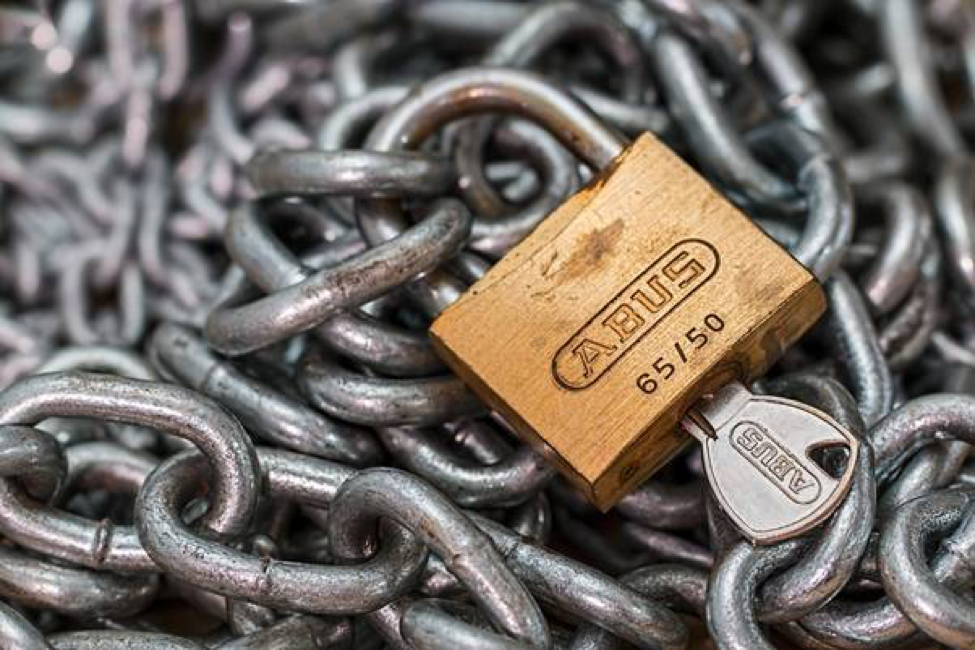How to keep your home safe from cyber criminals

These days, burglars choose their victims by simply logging in to Twitter or Facebook. A study suggests that about 80% of criminals use social media websites to know recent expensive purchases and gauge security and ease of access of residential houses.
A convicted burglar told interviewers that criminals are taking advantage of social media and websites such as Google Street View to get information about potential victims. “We’ll tell them even when we’re going away on holidays. We will let them know that we’re not in. We’re inviting them ‘round to our house,” he said.
The Internet can be a tool to make life better or a weapon to cause chaos. It’s our job to ensure that we’re protected from digital criminals ready to pounce anytime. Here are seven proven ways to help keep your home safe from the dark side of cyberspace.
Installing a simple home security system can deter burglars
A study by the University of North Carolina suggests that 83% of burglars would take efforts to know whether a home security system is installed, and 60% would avoid houses that have one in place. Securing your home and family doesn’t need to be costly. You can install a simple alarm system in passageways such as your front door and windows. There are affordable surveillance cameras available in home security shops that you can install on your own. Speak to a security expert to help you out.
Use the Internet of Things as a powerful shield
The Internet of Things (IoT) and cloud computing has been changing the way we live—from our work productivity to how we build new relationships. However, these wonders of technology can also expose you to tech-savvy criminals. An example is automating your home without adequate cyber security measures. In 2015, a staggering 2.9 billion IoT devices in residential homes were attacked by digital criminals.
Choose a reliable home security system when going for a smart home. Honeywell Total Connect is an alarm monitoring service that enables you to remotely manage your security system via your smartphone, receive real-time alerts and check on your house through live video. Honeywell Total Connect operates on secure communicators and is supported by highly-qualified security experts. Use IoT to your advantage!
Protect your home, create a strong password
Most security hacks for home safety doesn’t require expert knowledge. Simply changing the default password and routinely changing it will go a long way. According to studies, about 50% of people use weak passwords. Never use your personal information such as your birthdate, social security number or your nickname. However, it’s also important that you don’t forget your password. Think of something you can be familiar with but has nothing to do with your or your family’s information. Some recommendations are constructing a password from a sentence such as “The Bear Island remembers,” which might be “TBearIR3m3mb3rs,” or a line from a song. Also, the longer the password, the better.
Get real-time alerts about possible breaches
We can’t understate the skills of cyberspace criminals. Not even the world’s largest financial companies were able to deter sophisticated hackers. But this shouldn’t discourage you. While no system is perfect, there are simple measures to prevent breaches. If you have a smart home system installed, subscribe to real-time alerts. The latest alarm systems in the market today include a feature that sends alerts to homeowners about attempted attacks, leaks and smoke, even carbon monoxide emission. You can receive these notifications via your computer or smartphone wherever you may be. Furthermore, there are services that send real-time alerts to authorities for immediate response.
Be wary of using home routers and firewalls
A research paper by Australian researchers warns that routers and firewalls are unable to protect IoT devices from getting hacked. The network address translation (NAT) or firewall protection “can be easily penetrated by malware on users’ smartphones,” the study suggests. In the study, a maliciously tainted app identified Internet-connected devices inside a person’s home without his knowledge, giving a burglar all that he needs to decide how and when to attack. Moreover, the malware can restore the initial configuration to remove traces of the breach and keep it open for future attacks.
Researchers recommend investing in security solutions that able to analyze network traffic and identify attempted breaches. Seek assistance from a security expert if you must.
Track your online footprint
Since you started using the Internet, have you checked where you’ve posted your residential address, school and birthdate? Digital footprint is referred to as information you post online that leave tracks on the Internet. Despite privacy settings in your social media accounts, a determined hacker can still get data that can be used to defraud and harm you. The sad reality is that nothing is truly deleted from the Internet.
However, there are ways to protect yourself. You can seek the assistance of cyber security experts to get a report on your digital footprint and methods to delete compromising data. Moving forward, be cautious on what you post online. Under no circumstance should you put sensitive information, photos and videos out in the open. Place your Twitter, Facebook and other social media accounts under private settings, allowing a chosen few to view your account. Activate end-to-end encryption features in your messenger apps, or choose only platforms that have it.
Conduct a routine security sweep
Whether you’re securing your home or your email, a regularly check is necessary. As the saying goes, “an ounce of prevention is better than a pound of cure.” Digital criminals are skilled and equipped. The more sophisticated ones have access to the latest technologies that can break down your firewalls easily. How do you counter these? Be abreast yourself. Upgrade your home security software as often as necessary. Choose smart home systems from reliable manufacturers that are ready to heed your call anytime.
The Internet is probably the most important invention in the past century. It has changed the way we think, work and live. Understanding its ins and outs is a continuous journey as it evolves with society. Educate yourself on how to protect yourself in cyberspace.

